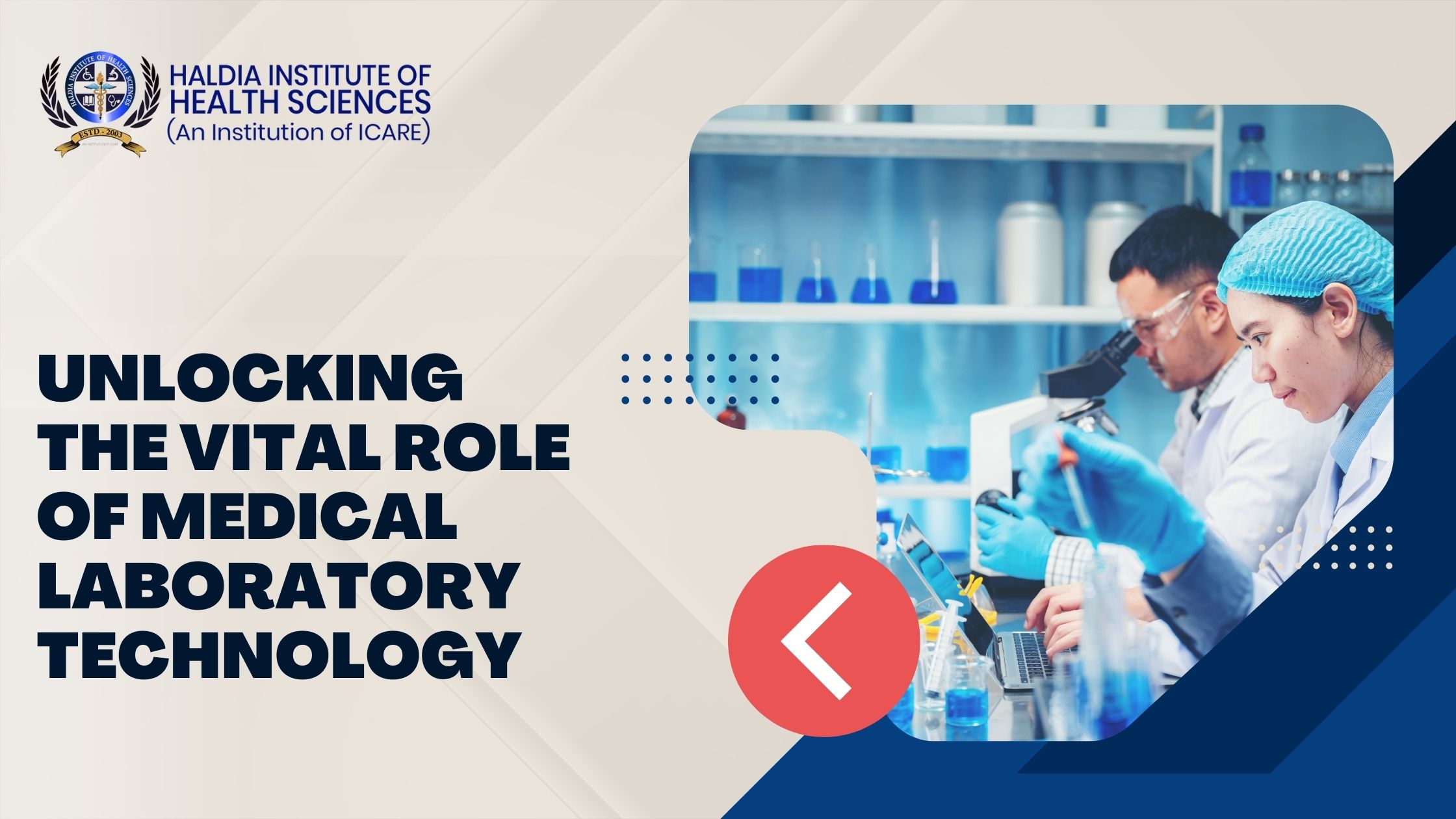Latest Notifications

Blog

Unlocking the Vital Role of Medical Laboratory Technology
Medical laboratory technology plays a vital role in the healthcare industry by providing essential diagnostic information to aid in patient care. It encompasses a wide range of laboratory tests and techniques that contribute to disease detection, monitoring, and treatment. Here are some key aspects highlighting the importance of medical laboratory technology:
Disease Diagnosis: Medical laboratory technology is crucial for accurate disease diagnosis. Medical laboratory professionals perform various tests on patient samples, such as blood, urine, tissue, and other bodily fluids, to detect and identify diseases. These tests help physicians make informed decisions regarding patient treatment plans.
Patient Care and Treatment Monitoring: Medical laboratory technology plays a significant role in monitoring the effectiveness of treatment. By analyzing patient samples at different stages of treatment, medical laboratory professionals can assess the progress and adjust the therapy accordingly. This helps in optimizing patient care and ensuring the most suitable treatment options are implemented.
Early Disease Detection: Medical laboratory tests enable the early detection of diseases even before symptoms manifest. Early diagnosis is crucial for initiating prompt treatment and improving patient outcomes. Medical laboratory professionals use specialized techniques and technologies to identify biomarkers and abnormalities in patient samples, aiding in the early detection of conditions such as cancer, diabetes, infectious diseases, and genetic disorders.
Research and Development: Medical laboratory technology contributes to medical research and development. Laboratory professionals assist in conducting clinical trials, studying disease patterns, identifying new biomarkers, and evaluating the efficacy of novel treatment options. Their expertise helps advance medical knowledge, leading to improved diagnostics and therapeutics.
Infection Control and Public Health: Medical laboratory technology plays a crucial role in monitoring and controlling infectious diseases. Laboratory professionals identify pathogens, conduct antimicrobial susceptibility testing, and monitor the spread of infectious agents in the community. By providing accurate and timely information, medical laboratories aid in developing effective public health strategies and preventing outbreaks.
Quality Assurance: Medical laboratory technology ensures the accuracy and reliability of test results. Laboratory professionals follow standardized protocols, quality control measures, and proficiency testing to maintain the highest levels of precision and accuracy. This is crucial for patient safety and maintaining the integrity of the healthcare system.
Multidisciplinary Collaboration: Medical laboratory technology fosters collaboration among healthcare professionals. Laboratory professionals work closely with physicians, nurses, pharmacists, and other healthcare providers to interpret test results, provide valuable insights, and contribute to the overall patient care team. Their expertise helps in developing personalized treatment plans and improving patient outcomes.
In summary, medical laboratory technology is indispensable in healthcare. It aids in disease diagnosis, treatment monitoring, early detection, research, infection control, and maintaining quality standards. By unlocking the vital role of medical laboratory technology, we can enhance patient care, improve health outcomes, and advance medical knowledge and innovation.

